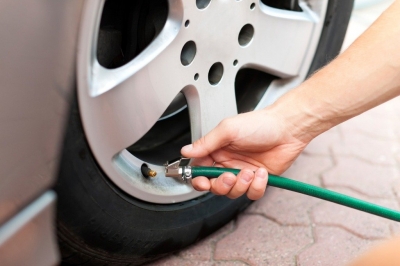
Air is compressible, water is not. When the tyre hits a bump or drops into a depression on the road, the impact pushes the air in the tyre into a smaller space. Thus the shock of the impact is absorbed by the cushion of air in the tyre, and is not passed on to the body of the car and consequently to the passengers.
Water cannot get compressed in this way. If a water-filled tyre were to hit a bump on the road, the water would retain its rigidity. As a result, the shock of impact would be passed on to the body of the car, jolting the passengers.
Secondly, water-filled tyres would increase the weight of the wheels and the vehicle would have to overcome greater rolling resistance. This would increase the load on the engine.
Picture Credit : Google



